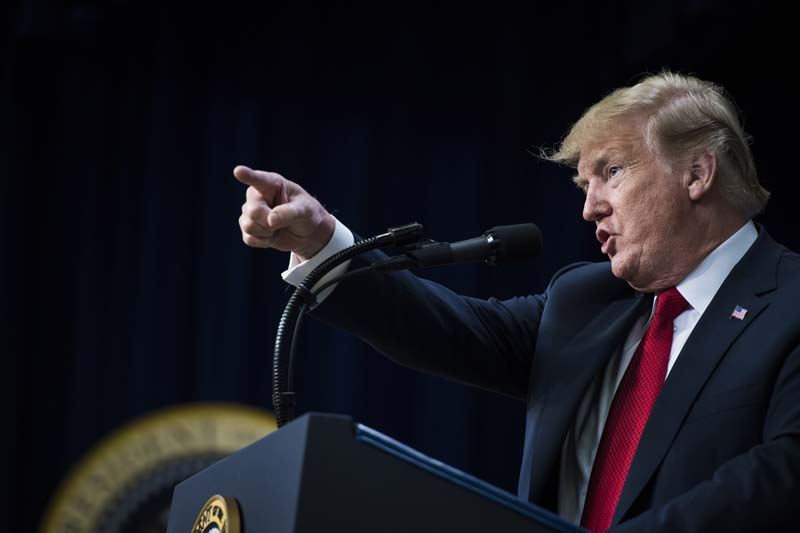 Jabin Botsford for The Washington Post
Jabin Botsford for The Washington Post
The declaration would make an end run around Congress' power of the purse and create another instance of "pen-and-phone" governance, which isn't how our system is meant to work. And it probably isn't even going to achieve his goal.
Still, a move to build the wall unilaterally wouldn't be nearly as brazen as President Barack Obama's pen-and-phone amnesty for so-called Dreamers, people brought illegally to the US when they were children.
The Obama administration simply wrote legislation on its own authority after getting stiffed by Congress. Trump would at least be relying on congressional statute and would ­ultimately have a better chance in the courts than Obama did.
No one paid any attention to it until this week, but the nation is awash in national emergencies. The national emergency declared in 1979 during the Iranian hostage crisis is still on. The national emergency stemming from "Regulations of the Anchorage and Movement of Vessels with Respect to Cuba," dating from 1996, is also still on.
So we have ample room for a ­national emergency at the border. The next step, which would presumably be reallocating military funds for building the border fence, is trickier. The administration can perhaps rely on statutes enabling the president to spend on construction to support the use of the armed forces or construction essential to the national defense.
This is where things get tenuous. No one to this point has thought of the border fence as a military project. It has been built up over the years with civilian funds by civilian workers. Yes, the National Guard and, at the moment, the active-duty military have been deployed to the border, but in a logistical or backup role and largely as symbolism.
The border crisis isn't amenable to a military solution. Because the rules around how we handle Central-American families are so latitudinarian, we could deploy the 82nd Airborne to the border, and migrants would simply surrender to the troops the way they currently do to Border Patrol agents and (correctly) expect to be waved into the country.
Even if technically legal, building the wall with an emergency declaration would obviously be pretextual, a reaction more to legislative inaction than to events on the ground.
First, there's the timing. Trump didn't declare an emergency over the past two years, even though his administration was rightly fixated on the influx of migrants. The emergency would, notably, have come about only after the president failed to get a larger budget request in a high-stakes political showdown.
Which raises another issue: The natural response to a national emergency isn't to say, "Let's undertake a long-term building project that won't be completed until perhaps midway through my second term, if then."
Congress could appropriate $10 billion for a border fence this year, and the border crisis would still proceed on its current trajectory for a long time.
Legalities aside, a declaration of a national emergency won't achieve what Trump wants, unless his goal is simply getting out from under the shutdown. That's easy. He can say he is going it alone under his emergency powers and agree to open the shuttered parts of the government, then fight it out in the courts.
But actually building the fence and showcasing it for the 2020 campaign is a different question. A district court somewhere would find a reason to immediately issue an injunction blocking the action.
Once the administration gets to the Supreme Court it might have a chance to prevail. But when would such a decision get handed down? Sometime in 2020? The Supremes didn't render their verdict on the travel ban stemming from the outset of the administration until last June.
Assuming Trump wins at the high court, it would take time to get anything going on the ground. Progress on the fence probably wouldn't be any more advanced by November 2020 than it would be otherwise and perhaps less advanced than if the president simply got some inadequate compromise out of Congress.
Too bad Congress long ago gave in to the imperial presidency, ceding vast amounts of its authority to the executive branch. What to make of a legislative body that leaves vaguely written statutes on the books giving the executive the authority to spend on projects at its own discretion?
It has to be tempting to try to take advantage of that laxity, but it would strain our system and probably not even work.
Sign up for the daily JWR update. It's free. Just click here.
(COMMENT, BELOW)


 Contact The Editor
Contact The Editor
 Articles By This Author
Articles By This Author